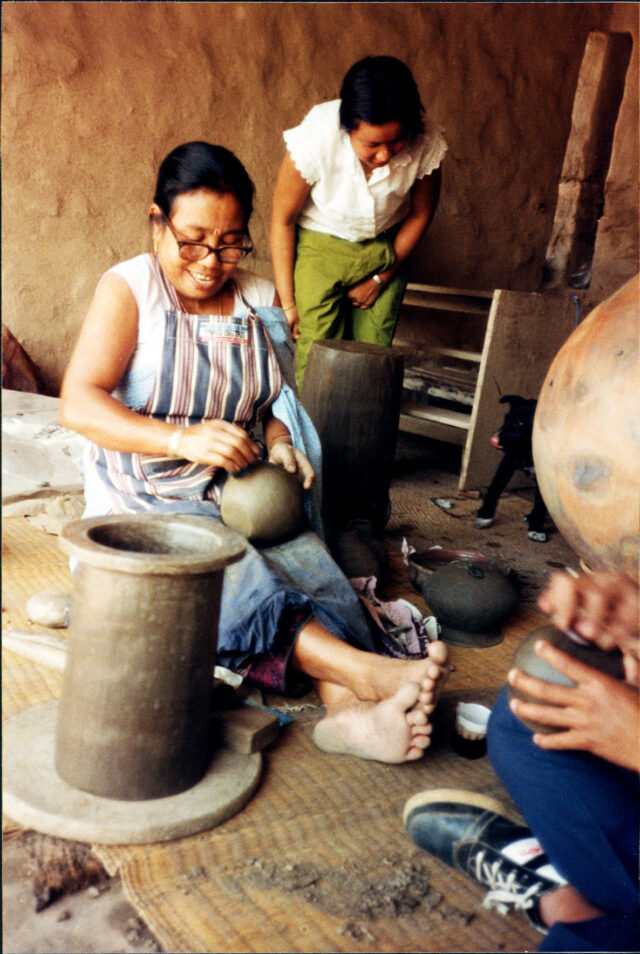This is the hand that raised the kids
that played in the kitchen
that had the pot
that cooked the corn
that sold in the market
that fed the family
that lived in the house
that Maria built.
Look at a house from a poor woman’s point of view. It is more than a shelter for sleeping and eating; it is also a woman’s primary workspace. Whether this work is paid or not may change over a lifetime. When children are young, a woman may work mainly as an unpaid housekeeper. However, a shelter can also be a place where she earns her living. If she is disabled, she can do home-based jobs, such as sewing. If she is a peddler traveling around the city, she must prepare her goods at home. An older woman can set up a small store right at the front door. She can cure the sick and care for children at home. The list of activities seems endless. There is one thing she is not likely to do at home: retire.

One error of many governments’ discussions about the home is assuming that men and women use it in the same way. Participants at UN meetings about economic development, including urban planners, academics, and scientists, often talk about a home from a male perspective: a place that you leave when you go to work. Home is considered a private space without connections to the public arena of commerce and politics. From a working woman’s point of view, this private space cannot be separated from their public life.
Reproduction, production, and consumption are the three pillars of a household economy. A woman is the fourth pillar, and she must keep the others balanced to take care of the whole family. If her job requires long-distance travel, and there is no daycare facility at work, she must find alternative care for the children. In many families, daughters drop out of school to help the family survive. Women must also consider their responsibilities as consumers of goods and services. A home’s location near a good school, water pumps, quality public services, and stores is as important for a family’s welfare as low-cost housing.
These are some critical gender and housing issues that need to be remembered in the Sustainable Development Goals. These issues cover living conditions that many of us know exist but are not always reflected in the outcome of a UN consultation. Policy-makers are prone to apply a double standard to women and shelter issues. They do not mind bringing women into the picture when referring to personal security or family life. However, they are less inclined to listen when women declare that housing is a political matter. Women want and should have more decision-making power about housing rights, including issues related to land and other assets.
Women’s rights are at stake when speaking about socioeconomic policies that create conflicts between women’s multiple roles. For example, to increase women’s economic participation, policies may favor foreign investments in export-oriented trade zones that attract a female work force. However, these jobs are often incompatible with women’s duties at home. There are few support services for childcare in these industrial parks even if management openly approves of working mothers.
Another example of this conflict between socioeconomic policies and women’s many roles is how poverty affects family planning. Poor women may have access to family planning services, but quality services do not guarantee that women have the choice to make decisions about reproduction. Women and health activists point out that in some Latin American countries, women appear to have access to a variety of family planning methods, but still undergo mass sterilization due to of poverty. They simply cannot afford to give up work days or extra money for visits to health clinics. True family planning is only possible when there are economic opportunities as well. These economic opportunities have declined for women due to the global economic crisis and higher fees for public services.
As we look to the future, I think of one important message from the International Labor Organization and the Beijing Platform for Action. To create compatibility between work and family, it is crucial to attain sustainable development. Let the women who speak from real-life situations have an equal say in how family and work fits into the bigger pictures.